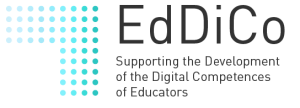NAVIGATE in 7 minutes – LO
The expected learning outcome is to get deeper into the topic faced by the following lessons:
-
Ludendo docere: Can play represent a valid learning support? Play and education. Fun and learning. Concepts that are often considered distinct, even antithetical.
-
Information Literacy and play: Play is the dimension identified by the NAVIGATE project in order to bring HE students in humanities closer to Information Literacy. From Information Literacy to Transliteracy to develop critical thinking on information.
-
The competences framework: From a comparative study of the students’ information literacy skills in Bulgaria, Italy and Sweden, it emerged that students have little ability to evaluate the information they retrieve online and therefore do not know the preliminary stages of identification of specialized resources or even the important information management phase.
-
NaviGAMESearcher: The first application of the competency framework was the evaluation of a selection of online games.
-
Play in educational contexts: Gamification, Game-based learning, Serious Games
-
Navi-Games: Two new games for the Information Literacy have been developed, both in terms of objectives and architecture. The games were designed and then developed in constant contact with teachers and librarians, precisely in order to have direct feedback from those who would later become the main recipient of these edutainment adventures.
-
Play the games! The two serious games are available and can be played by everyone.

